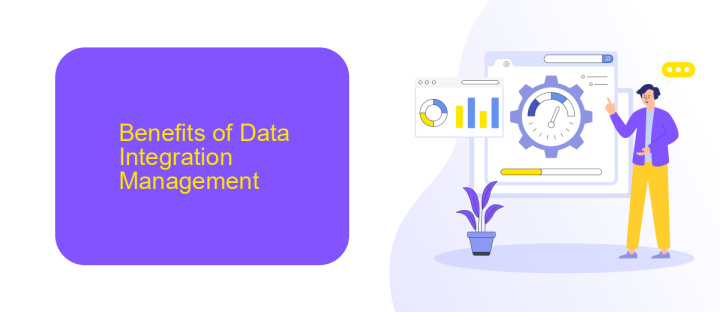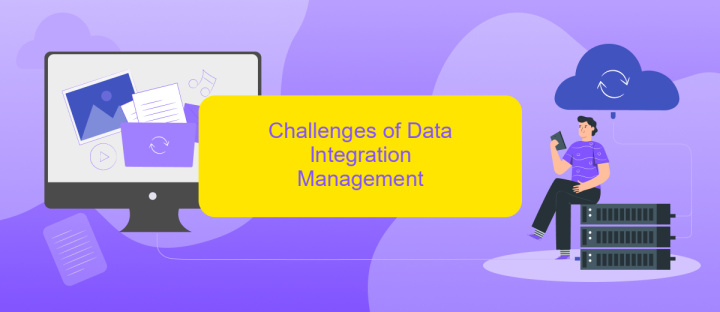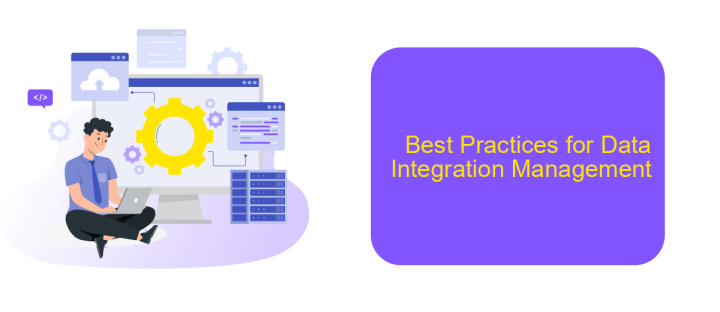Data Integration Management
Data Integration Management is a critical process in modern enterprises, enabling seamless consolidation of data from diverse sources into a unified view. This process ensures data consistency, accuracy, and accessibility, which are essential for informed decision-making. By leveraging advanced tools and strategies, organizations can streamline operations, enhance data quality, and drive business growth through effective data integration management.
Introduction to Data Integration Management
Data Integration Management plays a crucial role in modern businesses by enabling seamless communication between disparate systems. This process ensures that data flows smoothly across various platforms, enhancing decision-making and operational efficiency. Effective data integration helps organizations to consolidate data from multiple sources into a single, unified view, thereby providing a comprehensive understanding of business operations.
- Streamlined data flow across different systems
- Enhanced decision-making capabilities
- Improved operational efficiency
- Consolidated data for a unified business view
One of the tools that facilitate efficient data integration is ApiX-Drive. This service allows businesses to automate data transfers between numerous applications without the need for complex coding. By leveraging ApiX-Drive, organizations can set up integrations quickly, ensuring that their data is always up-to-date and accessible. This not only saves time but also reduces the risk of errors associated with manual data handling.
Benefits of Data Integration Management

Data Integration Management offers numerous benefits, including improved data accuracy and consistency. By consolidating data from various sources into a single, unified view, organizations can ensure that their data is up-to-date and reliable. This eliminates the discrepancies that often arise from using disparate data systems and enhances the overall quality of business intelligence, enabling more informed decision-making processes.
Another significant advantage is the increased efficiency and productivity it brings to business operations. Automated tools and services, such as ApiX-Drive, facilitate seamless data integration across multiple platforms, reducing the need for manual data entry and minimizing the risk of human error. This not only saves time but also allows employees to focus on more strategic tasks, ultimately driving business growth and innovation. Additionally, streamlined data workflows enhance collaboration across departments, fostering a more cohesive and agile organizational environment.
Challenges of Data Integration Management

Data integration management presents several challenges that organizations must navigate to ensure seamless data flow and accuracy. One of the primary challenges is data consistency, as integrating data from multiple sources often leads to discrepancies and duplicates. Ensuring data quality across different systems is crucial to avoid erroneous insights and decisions.
- Data Volume: Handling large volumes of data from various sources can overwhelm systems and slow down processing times.
- Data Security: Protecting sensitive information during the integration process is paramount, especially when dealing with external data sources.
- Compatibility Issues: Different data formats and structures can create compatibility problems, requiring complex transformations and mappings.
- Real-time Integration: Achieving real-time data integration is challenging due to latency issues and the need for continuous data updates.
- Scalability: As data sources and volumes grow, scaling the integration infrastructure to handle increased demand is essential.
Tools like ApiX-Drive can help mitigate these challenges by providing a platform for seamless data integration. ApiX-Drive offers automated workflows, real-time data synchronization, and robust security measures, making it easier for organizations to manage their data integration processes efficiently.
Best Practices for Data Integration Management

Effective data integration management is essential for ensuring seamless data flow across various systems and applications. To achieve this, organizations must adopt best practices that promote consistency, accuracy, and efficiency in data handling processes.
One of the key practices is to establish a clear data integration strategy that aligns with the organization's overall business objectives. This strategy should include well-defined goals, roles, and responsibilities, as well as a comprehensive data governance framework.
- Utilize robust data integration tools like ApiX-Drive to automate and streamline the integration process.
- Ensure data quality by implementing validation and cleansing procedures at each integration point.
- Maintain thorough documentation of all data integration processes and workflows.
- Regularly monitor and audit data flows to detect and resolve any inconsistencies or errors promptly.
By following these best practices, organizations can enhance their data integration management, leading to improved data accuracy, reduced operational costs, and better decision-making capabilities. Leveraging tools like ApiX-Drive can further simplify and optimize the integration process, ensuring that data is consistently and accurately shared across all platforms.
Conclusion
In conclusion, effective Data Integration Management is crucial for organizations aiming to harness the full potential of their data. By integrating diverse data sources seamlessly, businesses can achieve better decision-making, improved operational efficiency, and a competitive edge in their respective markets. The implementation of robust integration strategies and tools is essential to ensure data accuracy, consistency, and accessibility across various platforms.
Services like ApiX-Drive play a pivotal role in simplifying the integration process by providing user-friendly solutions that connect multiple applications effortlessly. This not only reduces the complexity of data management but also allows organizations to focus on their core activities while ensuring that their data is synchronized and up-to-date. As the landscape of data continues to evolve, investing in reliable integration management solutions will remain a key factor in driving business success and innovation.
FAQ
What is Data Integration Management?
Why is Data Integration important for businesses?
What challenges can arise during Data Integration?
How can businesses automate their Data Integration processes?
What are the benefits of using a Data Integration platform?
Time is the most valuable resource for business today. Almost half of it is wasted on routine tasks. Your employees are constantly forced to perform monotonous tasks that are difficult to classify as important and specialized. You can leave everything as it is by hiring additional employees, or you can automate most of the business processes using the ApiX-Drive online connector to get rid of unnecessary time and money expenses once and for all. The choice is yours!

